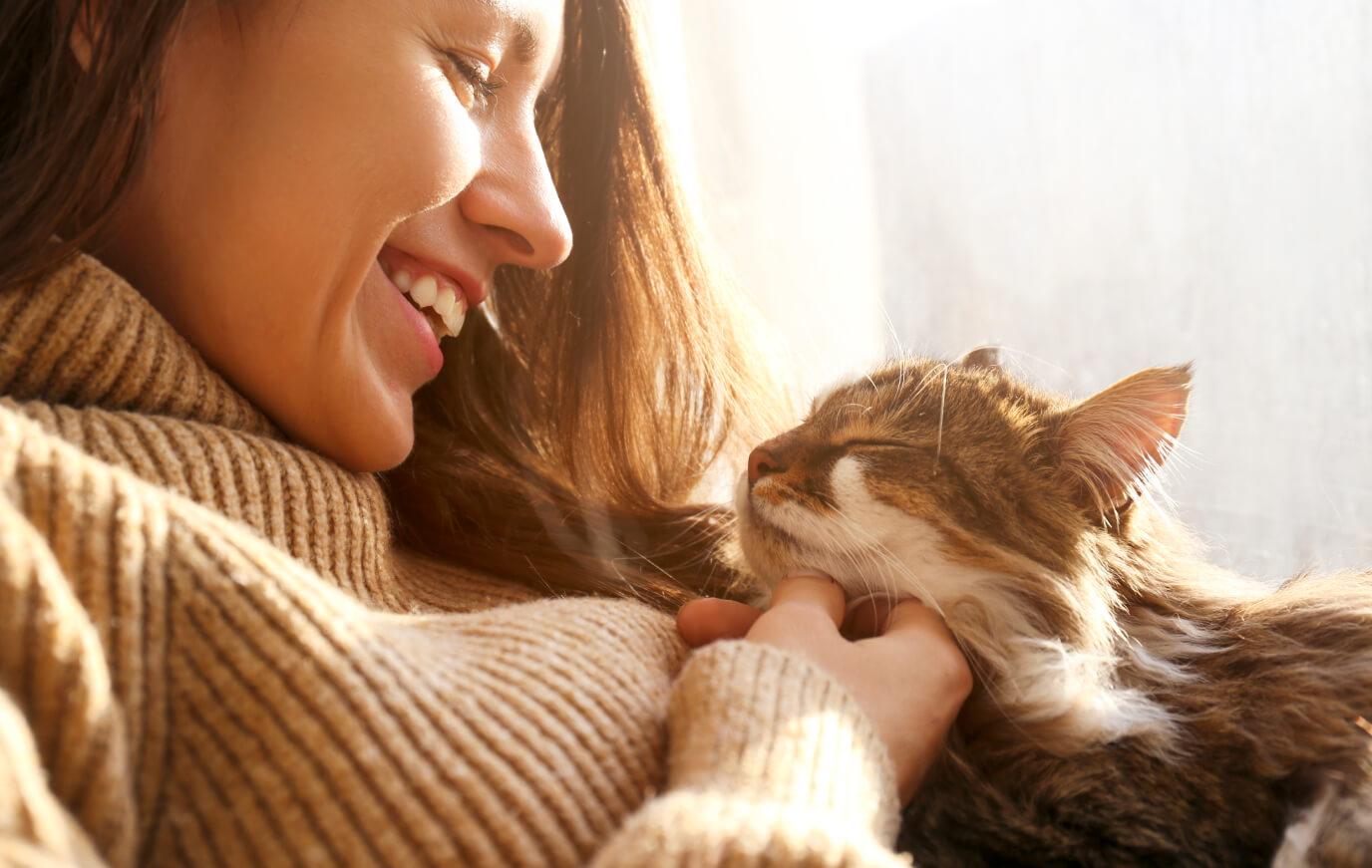Yes, your cat can eat a slice of cucumber along with you for breakfast. It can even be healthy for them. But, before going ahead and placing a big bowl full of cucumbers in front of your cat thinking about all the benefits they might provide, you must understand the right way and the right quantity of cucumbers to feed to your cat.
The ‘cool chap’ of the vegetable gang, cucumbers are known to be incredibly healthy for humans. Whether you’re eating them, placing slices on your eyes, or rubbing them over your skin. But before we get to the question of whether cucumbers are safe for your cat, let us first consider whether your cat is likely to even want to eat cucumbers.
Do Cats Like Cucumbers?
Now there are two sides to this question. Funnily enough, cucumbers may look like snakes to some cats. So, you might sometimes see a cat launch off a counter to get away from the fruit in front of them. Some cats though, might actually love cucumbers and show a lot of interest in eating them. (Sliced cucumbers don’t look like snakes anymore.)
Are Cucumbers Good for Cats?
Now that we know that sliced cucumbers are the way to go, the next question is, are cucumbers safe for your feline? As mentioned above, the answer is yes!
Keep in mind however that cats are carnivorous. They aren’t supposed to be fed fruits and vegetables daily. Some fruits and vegetables can even be toxic to them! But among the safe human foods, cucumbers can be a healthy, low-calorie treat that can provide multiple health benefits to your cat if fed in moderation.
An average cucumber (medium-sized with peel) or say around 45g serving of raw cucumbers consists of the following –
Carbs – 10.93g
Protein – 1.96g
Fat – 0.33g
Vitamin A – 15mcg
Vitamin C – 8.4mg
Potassium – 442 mg
Calcium – 48mg
Iron – 0.84mg
In moderation, cucumbers can prove to be a very healthy treat for your cat.
Health Benefits of Cucumbers for Cats
Along with vitamins C and K, minerals, and antioxidants, cucumbers also contain a mineral called molybdenum that’s good at increasing metabolism. Let’s review the benefits cucumber can offer your cat -
Antioxidants – are vital to in minimizing cell damage by free radicals.
Vitamin K – helps with clot formation, so the body can stop bleeding after injury.
Vitamin C – Helps with tissue growth and maintenance, managing oxidative stress, and also supports immune regulation.
Potassium - Is needed for normal function of muscles and bodily systems.
Beta Carotene – While your cat can’t convert beta carotene to Vitamin A, the antioxidant helps to keep your pet's immune system strong.
And let’s not forget that cucumbers are about 96% water! They’re great for helping keep your cat hydrated. Here are a few signs that your pet may be dehydrated.
How Much Cucumber Can a Cat Have at One Time?
After reading over the benefits cucumbers have to offer, you might be tempted to make them a daily part of your cat’s diet. But cats are carnivorous and 90% of their diet should come from protein and other non-veg products. Cucumbers should only be an occasional treat.
If you want to introduce cucumbers to your cat’s diet, start by feeding them a small piece about the size of your fingernail. And if after a few hours, they have not had a negative or allergic reaction, you can increase the amount. Remember, treats shouldn’t make up more than 10% of your cat’s total daily calories for the day. So, limit your cat to 1 – 2 small pieces of cucumber per serving.
How to Feed Cucumbers to Your Cat
If you’re ready to let your cat try a piece of cucumber, we recommend following the steps below to help make sure you do it in the safest way.
Washed the cucumber thoroughly – We do not want any type of dirt or pesticide to enter your cat’s digestive tract. Hence it is important to wash the cucumber thoroughly.
Peel and slice it – We recommend peeling the cucumber to help ensure that your cat will not consume any of the pesticides that could be on it. And unless you’re shooting a reaction video, you don’t want your cat to mistake their snack for a snake. Chop the cucumber into bite-sized pieces before adding a few pieces into their food bowl.
Remove the seeds – For cats, seeds can become a choking hazard. And even if your cat is able to eat the seeds without an issue, they can be difficult for your cat to digest. Make sure you remove all the seeds before feeding any pieces to your cat.
Keep it simple – We know you like your salads with seasonings and toppings, but this isn’t a good idea when you’re planning to share with your cat. Avoid adding any sort of seasoning. This includes garlic, vinegar, salt, onions, etc.
What Can Happen If Your Cat Eats Too Much Cucumber?
If your cat decides to indulge and eat a large amount of cucumber while you’re away or distracted, keep an eye out for the following symptoms. You should contact your vet right away if you see –
Increased urination
Diarrhea
Are There Any Cats That Shouldn’t Eat Cucumber?
Some cats can be more susceptible to an upset stomach after eating cucumber. For them, cucumbers should altogether be eliminated from their diet. The list includes –
Cats with chronic kidney disease and urinary problems – Cats with chronic kidney disease and urinary tract problems should avoid foods that are high in potassium. And cucumbers are one of them.
Breeds prone to renal disease - Maine Coons, Ragdolls, Burmese, and Siamese cats can be more prone to renal disease than other breeds. It is advisable to consult your vet before introducing cucumbers to your cat’s diet if your cat is one of these breeds.
Conclusion
The moral of the story is - Cucumbers are perfectly safe for your cat given that you feed to them only as an occasional treat, in the right quantity, and in the right way. But as an occasional treat, cucumbers can add some excitement into their meals and can even help keep your cat healthy.

Creative manager by day, pet enthusiast all the time! After 19 years with my dog (hopefully he wins the award for oldest pet in the world), I enjoy spending my days brainstorming tail-wagging content, and sniffing out the latest trends in the pet world.
*Jan 2019 to Aug 2024 Spot Pet Insurance Services, LLC claims data.
Carbo-Johnson, Karina. "Can Cats Eat Cucumber?" Purina, Jul. 28 2025, https://www.purina.com/articles/cat/feeding/can-cats-eat/cucumber.
"45g Cucumber (with Peel)," Fatsecret, n.d., https://www.fatsecret.com/calories-nutrition/usda/cucumber-(with-peel).
Koschalk, Katie. "Can Cats Eat Cucumbers?" Chewy, Apr. 30, 2025, https://www.chewy.com/education/cat/food-and-nutrition/can-cats-eat-cucumbers.
Kearley, Michael. “Chronic Renal Failure in Cats.” PetMD, 6 May 2022, www.petmd.com/cat/conditions/urinary/c_ct_renal_failure_chronic.
The information presented in this article is for educational and informational purposes only and does not constitute or substitute for the advice of your veterinarian.












